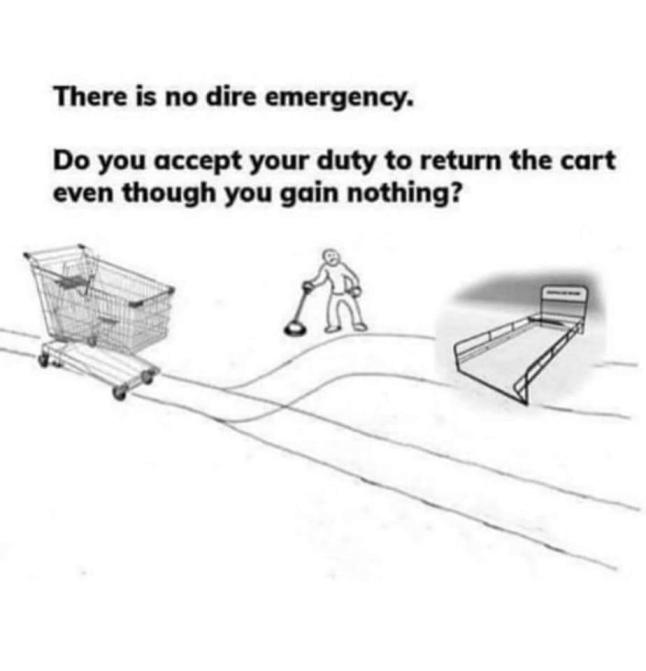this post was submitted on 02 Jan 2024
691 points (97.7% liked)
Just Post
1142 readers
93 users here now
Just post something 💛
founded 2 years ago
MODERATORS
you are viewing a single comment's thread
view the rest of the comments
view the rest of the comments

You do gain something though. By not contributing to the problem the overall likelihood that other people also don't contribute increases because they see a cart put away instead of a herd of them roaming the parking lot. Same as being polite when you aren't required to be.
Society exists because most people choose not to be assholes.
"Act only according to that maxim whereby you can at the same time will that it should become a universal law." The categorical imperative, Immanuel Kant
Oh yeah smart guy? Then is it still a categorical imperative if returning the cart will somehow result in greater harm than good, say if the employees are paid based on the number of carts they retrieve from improper positions? If not, then what use are maxims if they cannot take into account the specifics of a situation? Are they just a matter of logical coherence, or can they be used for actual decision-making?
ANSWER THE QUESTION